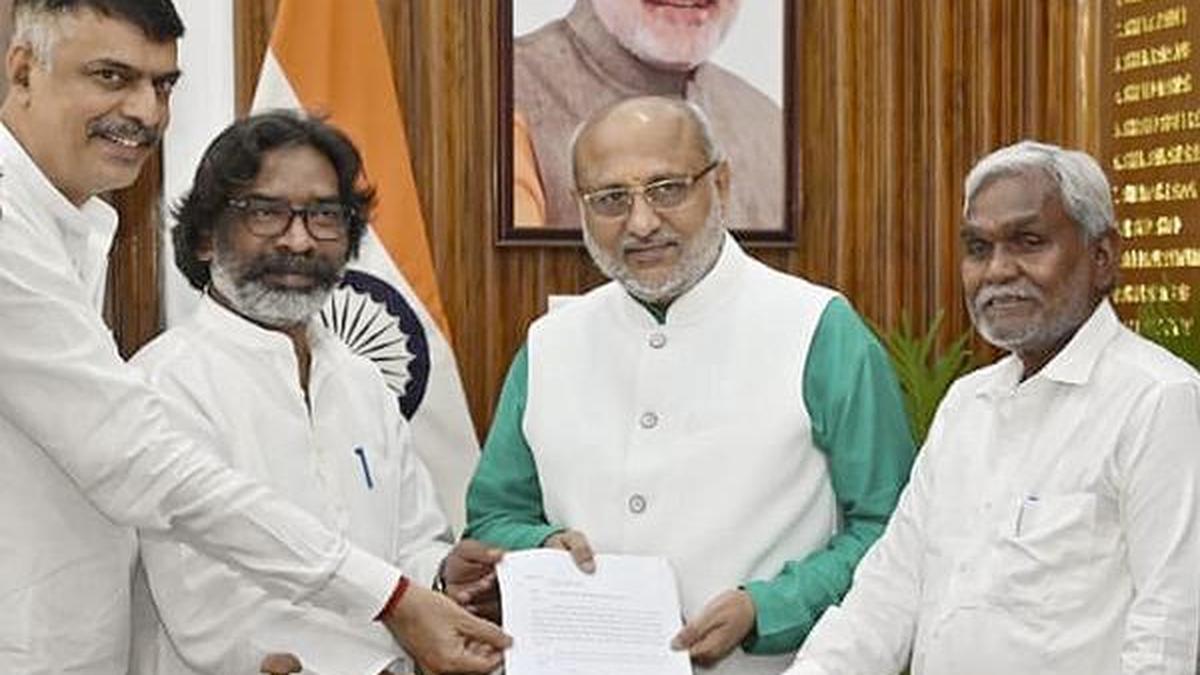 |
|
The Jharkhand Assembly elections, held in two phases on November 13th and 20th, witnessed a fierce contest between the ruling INDIA alliance, led by Chief Minister Hemant Soren of the Jharkhand Mukti Morcha (JMM), and the BJP-led National Democratic Alliance (NDA). The INDIA alliance comprises JMM, Congress, RJD, and CPI(ML), while the NDA includes BJP, AJSU, JD(U), and LJP(RV). The campaign was highly charged, with the BJP accusing the JMM-led coalition of prioritizing power and money, appeasing Muslims, and promoting hooliganism. Conversely, the JMM and Congress countered with accusations of the BJP employing deceptive tactics, communalism, and aiming to implement the Uniform Civil Code and a National Register of Citizens in Jharkhand. The election saw a significant voter turnout, with 64.86% in phase 1 and 67.59% in phase 2, indicating strong public engagement despite the contentious political climate. The results, to be announced on November 23rd, will determine the future of the state's governance.
The article highlights eight key battleground seats that saw intense competition among prominent political figures, including established leaders, defectors, and political dynasts. These seats represent significant political stakes and illustrate the complex power dynamics within Jharkhand's political landscape. Barhait, the constituency of Chief Minister Hemant Soren, witnessed a crucial contest against AJSU's Gamliyel Hembrom, highlighting the incumbent's vulnerability despite his party's dominance in the region since 1990. Seraikella saw a clash between rebel JMM leader and former CM Champai Soren (now with BJP) and JMM's Ganesh Mahali, underscoring the internal conflicts within the JMM and the impact of defections on electoral outcomes. This contest further accentuates the bitter personal and political rivalry between the two Sorens.
Jamtara featured a contest between Sita Soren (BJP), daughter-in-law of JMM chief Shibu Soren, and Congress MLA Irfan Ansari. This rivalry reflects the fractured family dynamics within the Soren family and the political realignments prompted by disagreements within the ruling party. Jagannathpur saw Geeta Koda (BJP), wife of former CM Madhu Koda, aiming for a comeback, facing opposition from JLKM's Lakshmi Narayan Laguri. This underscores the lasting influence of prominent political families despite changing party affiliations. Jamshedpur East, a BJP stronghold since the 1990s, saw Congress fielding Ajoy Kumar against Purnima Das Sahu (BJP), daughter-in-law of former CM Raghubar Das, signifying a battle between established political families and a challenge to the BJP's long-standing dominance in this region. Gandey, represented by Kalpana Soren (JMM), wife of Hemant Soren, faced a challenge from BJP's Muniya Devi, demonstrating the ongoing influence of the Soren family despite recent political setbacks.
Dumka, a JMM stronghold since 1980, saw Basant Soren (JMM), youngest son of Shibu Soren, defending the seat against JLKM's Subha Das Kora, showcasing the generational transition within the JMM and its continuing power base in this constituency. Finally, Ranchi, another BJP stronghold, featured a contest between six-time MLA CP Singh (BJP) and JMM's Mahua Maji, illustrating the persistent competition between the two major parties in a key urban constituency. The diverse cast of characters in these eight key constituencies underscores the complex and highly personalized nature of Jharkhand politics, where family legacies, intra-party rivalries, and shifting alliances play significant roles in shaping electoral outcomes. The results will not only determine the next government but also offer insight into the shifting political dynamics within the state.
Source: Jharkhand Assembly polls | From Barhait to Ranchi, here are eight battleground seats
